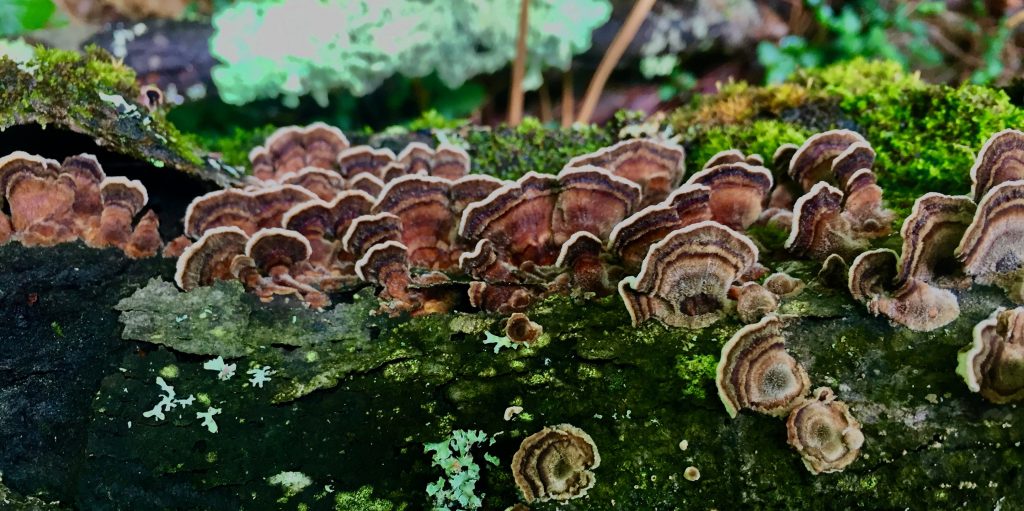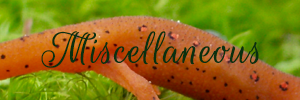What IS resistance and resilience, anyway? How does it manifest in our health? A strong, resilient immune system means that you’re less apt to get sick when exposed to pathogens (others around you are sick) or are under extra challenges (air travel, a busy work week) and that if you do get sick, the symptoms are less severe and you get over it more quickly. A strong, resilient nervous-endocrine system means that when stress pops up (because, no matter what, it still will) that you will are better able to rise to the challenge and resolve the stressor without flying off the handle emotionally, feeling as fatigued, or having disrupted sleep. A strong, resilient digestive system thrives on a healthy diet but can handle a wide range of foods and will not be thrown out of whack when you eat something different.
The immune system, nervous-endocrine system (in particular your stress response), and your digestive system are perhaps the three most important areas of the body to focus on to build resistance and resilience, having a positive impact on your entire being.
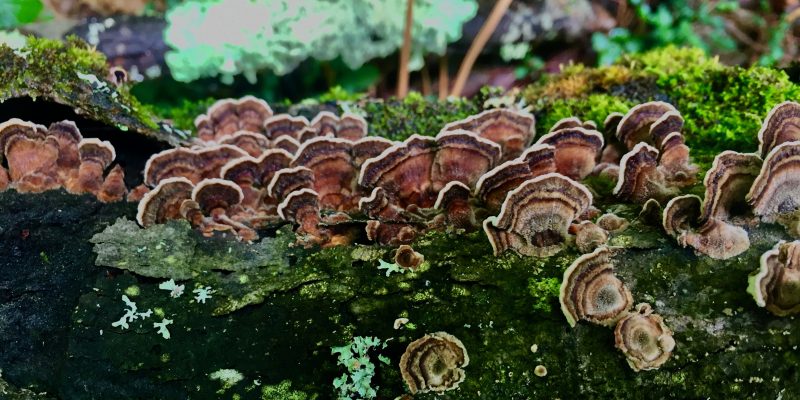
Building Immune System Resilience
When we think of immune-supportive herbs, often we turn first to echinacea (which mobilizes the immune army and acts primarily as an immune stimulant) or elderberry (which basically puts a force field around the cells to help prevent viruses from hacking your system). Both these herbs have great value, but they’re not really having a tonic, strengthening, modulating, resilience effect on the immune system itself. Sure, you could take echinacea or elderberry every day and it wouldn’t hurt you, but they’re best at high doses at the first sign of infection or when you know your susceptible. Think of them like putting your military out on the front lines, armed to the teeth, ready to fight. For daily support, you’re better off with polysaccharide-rich immune modulating tonics like astragalus and medicinal mushrooms including turkey tails, reishi, shiitake, and maitake. By modulating the immune system, the complex starches in these substances help the immune system be stronger and more resistant to infections as well as cancer, yet they can also help down-regulate a trigger-happy, over-reactive immune system, as you see in allergies and autoimmune disease. These resilience-builders are more like sending your immune system to training camp so that it communicates and functions better overall. I love to add them to soup broth, tea, and daily foods. Polysaccharides extract best in hot water decoction, powdered, and/or cooked, especially when you’re working with mushrooms (which have very tough chitin fiber binding everything up and may also have mildly toxic properties when raw/uncooked). I love to add powdered shiitake mushroom to soup, broth, sauces, casseroles. I use sautéed chopped fresh shiitake, maitake, and other yummy mushrooms like lion’s mane in food. Astragalus and a few slices of reishi mushroom blend well in teas, especially chai. (My favorite herbal chai base is made with 2 cinnamon sticks, 5-7 whole cloves, 2 cardamom pods, and 1 star anise pod per 12-16 ounces of water, simmered for about 20 minutes.) Many adaptogens play a supportive role in immune system modulation and resilience, including shizandra, holy basil, ashwagandha, and codonopsis.
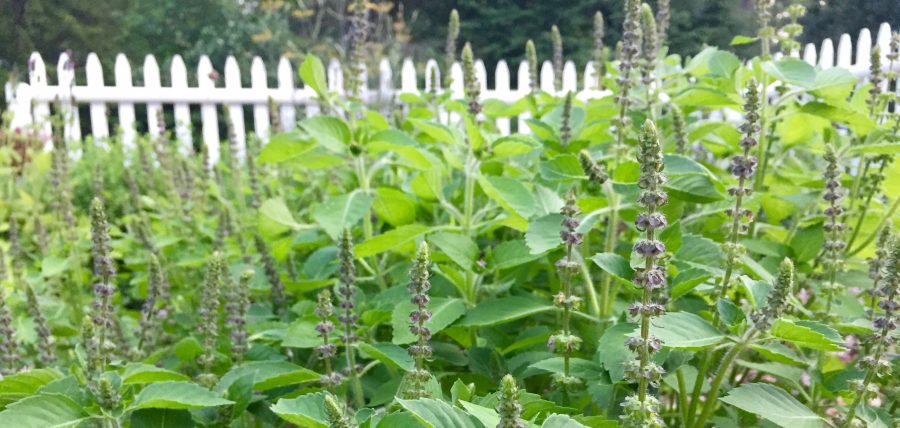
Building a Healthy Stress Response
Stress happens. It’s a normal part of the human existence. Our ability to jump into fight-or-flight mode involves both the nervous system (neurotransmitters) and endocrine system (adrenal hormones such as cortisol) and was essential for survival, which is why it can basically hijack all other body systems. When we live in a chronic state of stress from work, family life, relationships, finances, etc., we experience so many downstream negative effects: increased blood sugar, inflammation, risk for heart disease, cancer, cognitive problems, reproductive hormone imbalance, thyroid imbalance, and more. Yet, it’s hard to get off the crazy train of chronic stress. Our American culture is hard-wired for it. You can support a healthy nervous-endocrine system in so many ways: take up mind-body balance practices such as yoga, meditation, or deep breathing exercises; exercise; take up crafts and hobbies; focus on a better night’s sleep; ensure you’re getting adequate nutrients including B vitamins, vitamin D, iron, magnesium, and omega 3 fatty acids; spend more time outside in nature; unplug periodically; create healthy boundaries so you can say no and take better care of yourself.
Herbally, we turn to adaptogens to help us in this process and the rewiring of the nervous-adrenal system. Adaptogens help the body adapt to stress and modulate stress hormones and neurotransmitters. In this way, you can rise to stress’ challenges without getting thrown totally out of whack, and it’s easier to return to homeostasis after the fact. The result: better mood, more consistent energy levels, better cognition and focus, often better sleep as well. Each adaptogenic herb is a tad different in its specific indications or additional effects. Generally, you can organize them into two categories: those that are a little bit more stimulating and those that have more balancing calm-energy effects. More stimulating adaptogens include rhodiola, eleuthero, Asian ginseng, American ginseng, and codonopsis (I rarely use Asian ginseng and American ginseng due to adulteration, and I opt for organic/cultivated rhodiola and eleuthero for sustainability reasons – Mountain Rose Herbs is a great source). Somewhat in between lie maca, jiaogulan, and shizandra. More calming adaptogens include holy basil (tulsi), ashwagandha, gotu kola, reishi mushroom, and magnolia bark. Which one is right for you? You can refer to this overview chart of some of our most popular adaptogenic herbs to get you started. How you use adaptogens will depend on the individual herb and the ideal dose as well as how it tastes. They can all be used as tincture or pill. But holy basil (also called tulsi) makes an excellent tea (especially if you get the plant material direct from your own garden or a farm such as Bee Fields Farm, Terra Basics, Zack Woods, or Foster Farm Botanicals; much of the international herb trade holy basil is… meh), especially combined with green tea or (from the garden/farm) lemon balm. Ashwagandha infused nicely in mild and chai spices. Jiaogulan makes a nice tea. Maca mixes well in smoothies and nut-butter-honey balls or with chocolate….
Another category of herbs that help with nervous-adrenal health are our nervines. These are herbs that support the nervous system. Three of my favorites include lemon balm, milky oat seed, and motherwort. I could (and do) teach whole classes on this topic! You can learn more about oat here, gotu kola here, an article on gotu kola/lemon balm/holy basil/oat here, and yet another article I did on ashwagandha/motherwort/holy basil/ lemon balm/oat here. I also devote a LOT of space in both of my books to these herbs.

Digestive Resilience
A well-functioning digestive system is essential for overall vitality. While you need to eat a healthy diet of whole foods, you also need your digestive system to be able to break it down so that you can actually absorb those nutrients. Your digestive system also plays a tremendous role in your immune system, your mood and neurotransmitters, and more. Within the digestive system lies much of your microbiome, the symbiotic relationship of your human self with the trillions of bacterial, which also has a tremendous effect on your digestive function as well as many other body systems. Digestion can get complicated and is highly individual. The biggest chapter of my book Body into Balance focuses on the digestive system, and I could easily write a chapter double the size and not cover it all. Digestive health is one of the major things I support when working with my clients as well. So many different categories of herbs can be useful for different people depending on what specifically is going on with their individual digestive systems. Yet, if I were to pick out two categories of remedies to look at first for most people, they would be bitters and probiotics.
Digestive bitters enhance digestive function by turning on stomach acid, digestive enzyme production, motility, liver detoxification, bile excretion, and more. They also help modulate appetite and satiety as well as blood sugar and even mood. My favorite bitters include artichoke leaf (usually as a tincture, it’s sooo bitter), dandelion root (tincture or tea), turmeric, and schizandra (which is an adaptogen, bitter, and sour herb). Chamomile, lemon balm, catnip, and holy basil have mild bitter-carminative properties that lend themselves well to tea and also ease nervous tension. Often we add something a bit warming to them, like ginger, cinnamon, or cardamom, which all also improve digestive function.
Probiotics help replenish and support a healthy microbiome with beneficial and commensal bacteria. Prebiotics are generally complex starches from the diet (beans, whole grains, vegetables, garlic, onions) or herbs (chicory root, dandelion root, ginger root) that help feed good bacteria and encourage their repopulation. You can certainly take them in supplement form, but I particularly enjoy fermented foods, especially fermented vegetables like kimchi, sauerkraut, and other veggies such as fermented beets, carrots, ginger, or daikon root. To learn more about the microbiome and ways to support it, check out this blog post. I also have an online class specifically on healing the gut.
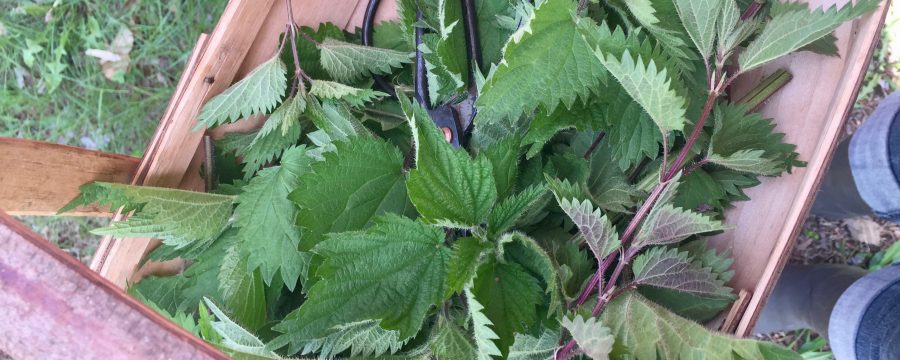
Nourishing the Body
Herbs not only support the digestive system so that you better absorb the nutrients you eat, but you can also use nutritious herbs (nutritives) as nutrient-dense, easily absorbed minerals and nutrients. Consider nettle leaf, dandelion leaf, violet leaf, horsetail, oat straw, red clover blossoms, calendula blossoms, and others. Nettle, horsetail, calendula, and oat straw can be added to soup broth alongside nutrient-dense bones and vegetables. Fresh dandelion, violet, and blanched nettle leaves make excellent pesto. All can be made into basic teas, strong nourishing infusions, or decoctions (I often flavor them with peppermint, spearmint, holy basil, or the aforementioned chai base), though large amounts of calendula can be unpalatably bitter and I personally don’t like dandelion leaf in tea due to its bitter flavor.
Last Thoughts
All of these herbs work best when consumed daily or at least regularly. If you’re new to the herbs, star with low doses and work your way up. Consider trying one new herb at a time before adding another. Listen to your body for what resonates and what doesn’t. If you’re on pharmaceuticals, double-check for herb-drug interactions or seek an herbalist or naturopathic doctor’s guidance.
Also note that I’m speaking in general rules here. No one herb or set of herbs are perfect for everyone. While astragalus and mushrooms usually help in autoimmune disease, if you notice that you get a flare-up every time you take them, then stop. Even though bitters often ease heartburn and help in a range of digestive issues, if bitters give you wicked reflux and hurt your gut, then stop. Even though adaptogens often support mood, if an adaptogen makes you feel irritable and over-stimulated, then stop. Find a different herb or a different set of herbs that’s more supportive to you and your unique condition. If you’re allergic to eating mushrooms, then shiitake might not be a good idea for you. If you’re react to nightshade plants (tomatoes, potatoes, bell peppers), then ashwagandha (also a nightshade family plant) might not be right for you. If prebiotic starches give you tremendous gas, try starting with just a tiny amount or consider guidance (you probably have SIBO, dysbiosis, or FODMAP issues that need to be addressed first). But, generally speaking, these herbs can be amazing allies for most people to improve their health, vitality, resistance, and resilience. Enjoy your journey!
Clinical herbalist Maria Noël Groves sees clients and teaches classes at Wintergreen Botanicals Herbal Clinic & Education Center in Allenstown, New Hampshire.Her books Body into Balance and Grow Your Own Herbal Remedies as well as her online and live classes cover these herbs and conditions in greater depth and also include more recipes.
The statements made on this blog have not been evaluated by the FDA and are not intended to diagnose, prescribe, recommend, or offer medical advice. Please see your health care practitioner for help regarding choices and to avoid herb-drug interactions.

